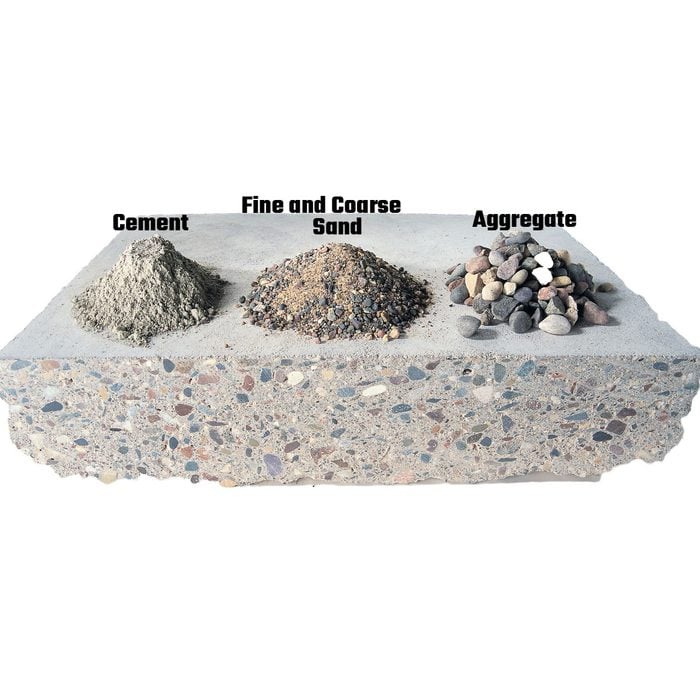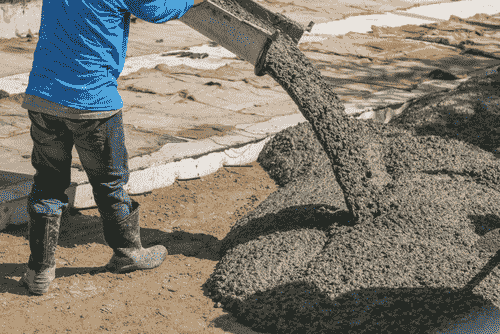Comprehensive Guide to Concrete: From Installment to Completing Touches
Comprehensive Guide to Concrete: From Installment to Completing Touches
Blog Article
Revealing the Eco-Friendly Advantages of Using Recycled Concrete in Sustainable Building Practices
In the realm of sustainable building and construction practices, the utilization of recycled concrete stands as a critical yet frequently undervalued source. Past its standard applications, recycled concrete deals a myriad of green benefits that extend far past the confines of traditional building and construction materials.
Ecological Advantages
Undoubtedly, among the most significant advantages of making use of recycled concrete is its positive effect on the environment. By incorporating recycled concrete right into construction methods, there is a significant reduction in the need for brand-new resources, causing conservation of natural deposits. This process helps in maintaining aggregates, water, and energy that would have been utilized in producing new concrete. In addition, the use of recycled concrete lessens the quantity of waste being sent out to land fills, thus reducing ecological air pollution and easing the strain on landfill capacities.

Furthermore, the production of traditional concrete is a considerable resource of carbon discharges due to the energy-intensive procedure of concrete production. On the other hand, recycled concrete has a reduced carbon impact as it minimizes the demand for new concrete production. This decrease in carbon exhausts adds to mitigating climate adjustment and sustains sustainable construction practices. Generally, the ecological benefits of using recycled concrete are considerable and play an important duty in promoting green building and construction approaches.
Cost-Efficiency
Achieving cost-efficiency is a paramount consideration when examining the application of recycled concrete in building tasks. One of the key advantages of utilizing recycled concrete is its cost-effectiveness contrasted to conventional concrete.
Additionally, using recycled concrete can lead to cost savings in landfill expenses by drawing away concrete waste from disposal sites. This not only minimizes the ecological influence yet also gets rid of the expenses connected with waste removal. The durability and performance of recycled concrete are equivalent to conventional concrete, making sure that expense savings do not endanger the top quality of the building and construction.
Durability and Toughness
Recycled concrete offers equivalent, if not remarkable, toughness and stamina properties to standard concrete - Concrete. Through developments in processing strategies and quality control, recycled concrete can meet or surpass the efficiency requirements of conventional concrete.

Waste Decrease
When it comes to utilizing recycled concrete, waste decrease is a crucial benefit that contributes substantially to ecological conservation. By incorporating recycled concrete into building projects, this waste is repurposed and drawn away from landfills, minimizing the overall ecological influence of building tasks.
Additionally, the use of recycled concrete can lead to set you back financial savings for construction jobs, as it is typically more budget-friendly than sourcing and transporting new products - Concrete. In verdict, waste reduction via the use of recycled concrete is an important element of sustainable building practices that benefits both the atmosphere and the building sector as a whole.
Power Conservation
When it comes to making use of recycled concrete in building, discover here significant energy financial savings are attained compared to typical concrete production. The procedure of generating recycled concrete entails recycling and squashing existing concrete materials, which takes in less power than mining, processing, and delivering raw materials for try this out brand-new concrete production.
Verdict
To conclude, the application of recycled concrete in sustainable construction practices uses numerous environmental benefits, cost-efficiency, sturdiness, stamina, waste reduction, and energy preservation. By integrating recycled concrete right into construction projects, we can add to an extra eco pleasant and lasting future. It is vital for the building and construction industry to focus on the use of recycled products to help in reducing the environmental effect of building and construction tasks.
One of the key benefits of utilizing recycled concrete is its cost-effectiveness compared to conventional concrete.Furthermore, the use of recycled concrete can lead to cost savings in garbage dump expenses by drawing away concrete waste from disposal websites. The toughness and performance of recycled concrete are similar to standard concrete, making sure that expense financial savings do not compromise the quality of the construction.

Report this page